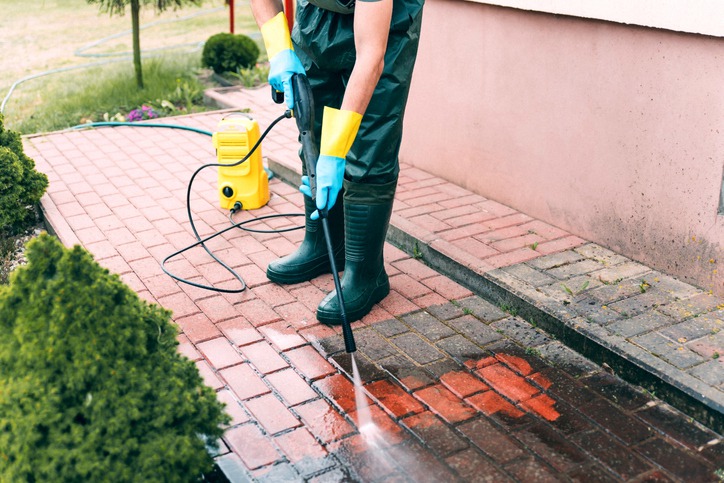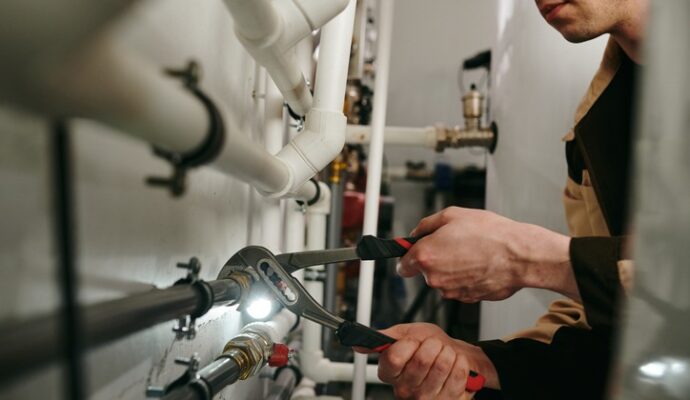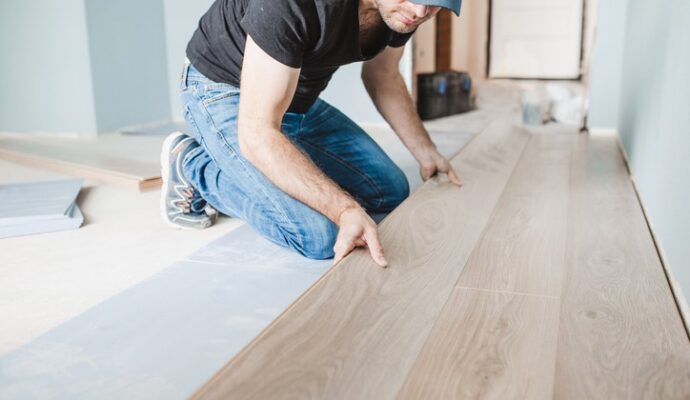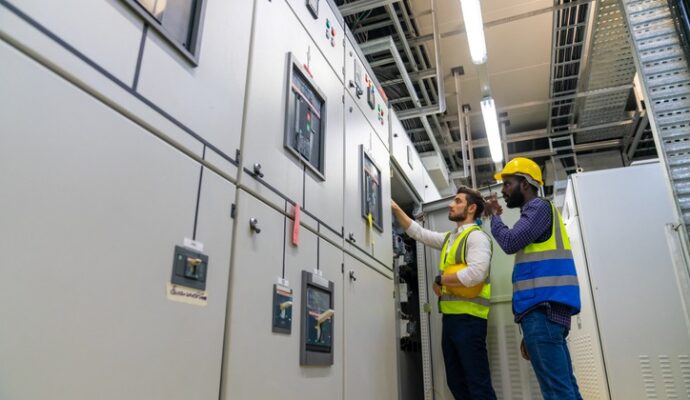Pressure washing is one of those home maintenance jobs that seems easy at first glance. After all, how hard can it be to aim some water at your siding or driveway and blast away the dirt? Well, as many homeowners come to find out, DIY pressure washing isn’t as simple – or as risk-free – as it looks. Before you drag that rental pressure washer out of your trunk, it’s worth learning why pressure washing is a lot trickier than it appears and how the professionals do it the right way.
The Allure of DIY Pressure Washing
There’s a certain satisfaction that comes with tackling jobs around the house yourself. For many homeowners, pressure washing feels like an attainable weekend project that could save money and deliver sparkling results in just an afternoon. You can rent a machine, watch a quick tutorial, and handle the grime. It feels empowering, and you get to avoid the cost of hiring a crew.
But pressure washing isn’t just point-and-shoot—it involves understanding pressure settings, cleaning agents, surface types, and safety protocols. What seems like a simple job can easily go wrong, leaving you with more headaches than clean surfaces. Let’s break down where things go sideways.
What Can Go Wrong with DIY Pressure Washing
You Might Use Too Much Pressure
This is the most common mistake. When DIYers rent a pressure washer, they often choose a high-powered model, thinking more pressure equals more cleaning power. In reality, too much force can damage wood, strip paint, gouge siding, and even crack concrete. Here’s what can happen:
-
Wood decks: Splintering, splashing, and grain damage.
-
Vinyl siding: Warping, holes, or loosening from moisture intrusion.
-
Concrete: Etching, lines, or cracks from excessive pressure.
-
Windows and seals: Broken seals or shattered glass.
Improper Cleaning Solutions Can Cause Issues
Not all cleaning solutions are made for every surface. Using the wrong detergent—maybe something too acidic or too alkaline—can bleach, discolor, or deteriorate finishes. When these chemicals are not rinsed thoroughly or applied incorrectly, you risk killing plants, damaging siding, or even harming pets and children who come into contact with the area.
Lack of Professional Experience Leads to Incomplete Cleaning
It’s easy to overlook certain areas or fail to clean deeply enough, especially if you’re not trained to spot buildup or mold. Sometimes, DIY jobs only clear surface-level dirt, leaving mold, algae, or grime deep in porous surfaces. This incomplete cleaning can cause problems to come back even quicker than before.
Water Intrusion Risks
Pressure washers produce a forceful stream of water, which can get behind siding, under shingles, or into window frames. If water seeps into these vulnerable spots, it can cause:
-
Mold growth inside the walls
-
Rotting wood
-
Deterioration of insulation
-
Water stains on ceilings or walls
Once inside, trapped moisture is difficult to dry out and can become a long-term issue, especially in humid climates.
Safety Hazards Are Real
High-pressure water can cause serious injuries. Thousands of ER visits occur each year due to pressure washer mishaps, some resulting in deep lacerations, eye injuries, or falls from ladders. The risk is even higher when using extension wands on roofs or second stories. Water and electricity can be a deadly mix, so it’s easy to see how quickly things can get risky if you’re not careful.
Why Professionals Can Do It Better
Pros Know The Right Pressure For Every Job
A big advantage of hiring professionals is that they understand the subtle differences in your home’s surfaces. They know how to adjust the pressure for stucco, wood, vinyl, and brick so nothing is damaged in the cleaning process. It’s about finesse, not brute force—something that takes training to master.
They Use Professional-Grade Equipment and Safe Cleaners
Professional pressure washing companies invest in commercial machines that let them fine-tune pressure and temperature. They also use specialized detergents and cleaning agents formulated for specific stains and surfaces.
-
Biodegradable solutions that won’t harm landscaping
-
Mildew removers are safe for siding and brick
-
Low-pressure settings for sensitive surfaces
This results in a more thorough clean without any of the collateral damage of over-the-counter products.
They Take Care of Windows and Entryways
Professionals know homes’ weak points: window seals, doorways, gutter seams, and soffits. They protect these areas, adjust the pressure, and may even work by hand close to vulnerable spots. Thorough preparation keeps water out of your home’s vulnerable interior and ensures it stays dry inside and out.
How Pros Prevent Common DIY Mistakes
Detailed Assessment Before Cleaning
Professional pressure washers start by assessing your home’s unique needs. They look for issues like peeling paint, failing sealant, mold, or cracked mortar joints and create a custom plan. This attention to detail ensures they use the right techniques for the job.
Specialized Skills for Delicate Surfaces
Pressure washing isn’t just about getting things wet. For surfaces like roofs, professionals often use a “soft wash” technique—a method that uses low pressure and specialized solutions to clean safely. Instead of blasting away at shingles, soft washing preserves the integrity of roofs, keeping granules intact and voiding the risk of leaks.
If you’re considering a DIY approach to cleaning your roof and want to avoid costly damage from high pressure, click here for information on roof soft washing from expert sources. This technique is especially critical for asphalt shingles, tile, and older roofs.
Protecting Landscaping and Outdoor Fixtures
If you’ve ever washed your house and watched your favorite shrubs wilt or your lawn edges brown, you know how chemicals and overspray can devastate landscaping. Professionals carefully cover plants’ direct runoff and use plant-friendly detergents. They often rinse surrounding foliage before and after the job to neutralize any residues, which means your garden survives the wash job just as sparkling clean as your siding.
Attention to Consistency and Finish
DIY jobs often result in streaks, missed spots, or uneven cleaning. This is particularly noticeable on large, flat surfaces like driveways or brick patios. Professionals use overlapping, consistent strokes with proper technique to ensure a flawless finish every time. They’ll spot tough areas and return for additional passes as needed, meaning that the job isn’t “done” until it actually looks perfect.
The Hidden Costs of DIY Pressure Washing
Unexpected Repairs and Replacements
Most DIYers are attracted by the potential cost savings of pressure washing themselves. But if power washing leads to broken seals, chipped paint, or siding damage, those repairs can quickly outstrip the price of hiring a pro. Home warranty policies usually don’t cover “accidental homeowner damage” either, so you might be footing a bigger bill than expected.
Time, Labor, and Stress
Even small homes can take an entire weekend to set up and clean. Factor in trips to the hardware store, learning time, retries to fix streaks, and eventual touch-ups, and you’ll find the savings aren’t so clear-cut after all. Professionals can handle the process efficiently, usually in just a few hours, and leave everything perfectly in order.
Proper Post-Cleaning Inspection
After washing, it’s important to inspect your surfaces for missed areas, early damage signs, or pooled water. Many homeowners skip this step, which can lead to problems with mold, moisture, or deteriorating finishes later on. Pros will always give your home a full walkthrough to spot and address anything amiss.
Relying on Trusted Expertise
For bigger projects, it’s always best to contact a reputable provider of trusted pressure washing. Not only do they have the tools and materials necessary for success, but their experience helps guarantee a higher-quality finish that’s both effective and damage-free, keeping your home safe and beautifully clean.
How to Choose the Right Professional Pressure Washer
Credentials and Training
Check that your chosen team is licensed, insured, and trained to handle different surfaces. Ask for examples of past work, read reviews, and don’t hesitate to request references for similar homes in your neighborhood.
Eco-Friendly Practices
Responsible companies should be clear about their detergents and effluent management. You want someone who protects your landscaping, recycles water when possible, and leaves no trace behind except for sparklingly clean surfaces.
Clear, Transparent Estimates
Reliable pressure washing pros will provide detailed quotes and walk you through their cleaning plan. Compare service packages, and don’t be swayed by rock-bottom prices—they often indicate cutting corners.
For homeowners who demand a flawless result, the best house washing services in Atlanta, GA, often combine years of experience with the latest in safe, eco-friendly cleaning products, ensuring your surfaces last longer and stay brighter with less risk.
Final Thoughts
Pressure washing seems like a simple DIY project on the surface, but the risks to your home’s beauty and structure are real and often expensive to fix. With safety, proper techniques, and extensive experience, professionals know exactly how to achieve great results without damage. Next time you consider tackling the job yourself, remember how much you value your home—and why sometimes, it’s worth calling in the experts to keep it looking its very best, year after year.




